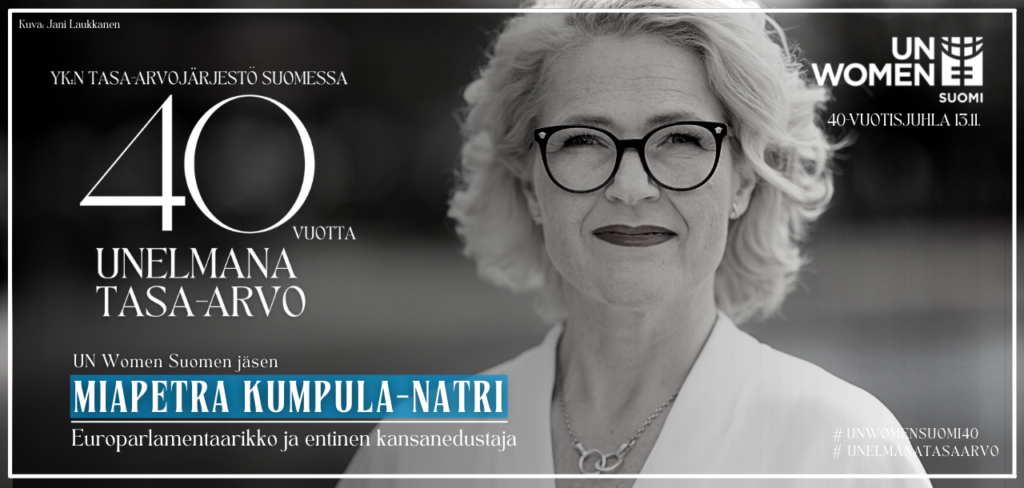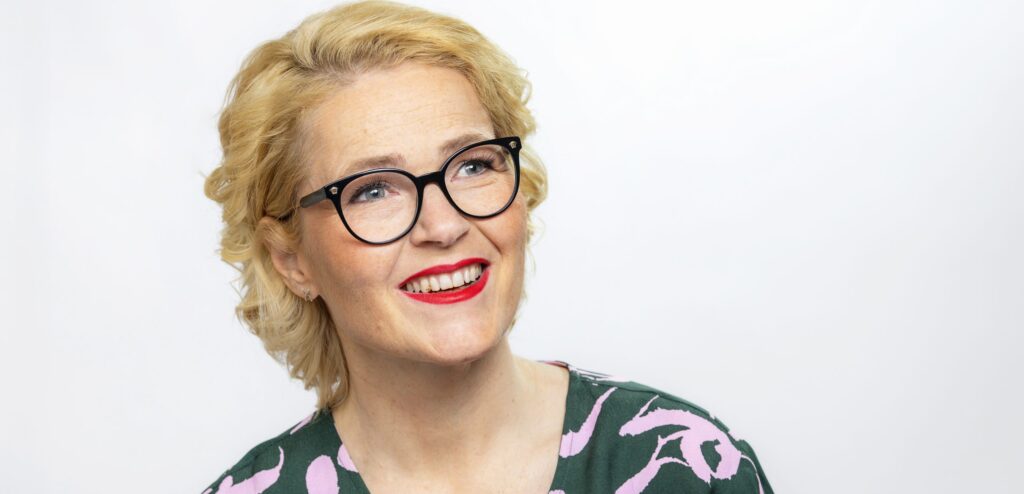UN Women Finland celebrates its 40th anniversary in 2021. To celebrate, we want to tell the stories from our members; after all, they are the beating heart of our organization. They support our work for equal world, which is crucial for us so we can keep on fighting for women and girls in the future. We asked our members what do they think about equality and UN Women Finland. Here we interview Miapetra Kumpula-Natri, a MEP and a former MP.
“I cannot quite recall when I joined UN Women Finland. However, I was the president of Eurooppanaiset ry (a Finnish organization for women focusing on EU) at the time, and that’s how I learned about different organizations and groups which focused on women’s issues. I had been interested in UN since I was a child: I dreamt of becoming a doctor working in developmental cooperation.
When I became active in these women’s organizations, I realized that one does not born to work for further equality, but one has to actively learn to work and fight for it. I used to be naive and think that all women work “automatically” for gender equality, but I learned that it is not that simple. Creating a more equal world requires action, research and discussion – and we also need to support organizations like UN Women!
As a MP and MEP, I have aimed to work for equality. I have written and talked about gender equality a lot, not least because I grew up in a time when everything seemed to progress. A lot had been already achieved, and the world seemed to take new steps everyday – from gender quotas in local politics to the first elected female president of Finland. At one point, it felt as if everything had already been achieved.
The past ten years have made me think about the direction where we are going in terms of gender equality. One cannot take equality for granted, and I can see that the clock has ticked backwards in many places. It is not only about Trump’s America or Orbán’s Hungary, but one can also see that in Finland this type of neoconservatism has risen in public discourse.
I have been lucky in a sense that I have not experienced that much discrimination or prejudice based on my gender. I studied engineering which is a field where women are very much underrepresented. Some comments that have been said about me and which have been intended “as a joke” might tell a more serious tale about structural inequality.
After my graduation, I became the president in the board of my school (university of applied sciences of Vaasa). When I participated in a technology-themed event as the president, the man who presented me on the stage made a comment: “Here is our new president – we choose our leaders on the basis of their looks!” I have continued to cooperate with this man. I don’t think that I was the person who should have been ashamed in that situation anyway.
In general, I don’t think there is enough discussion about women’s underrepresentation when new technology is developed. If all researchers and product developers are men, how new technological solutions, or AI, for example, are supposed to take into account women or minorities? The use of AI is based on huge amounts of data, and often this data has biases. For example, CEOs are more often men than women, we should take note of this cultural bias, which leads to biased data.
I think cultural norms and attitudes are the biggest barriers on our way to a more equal world. The progress that we have achieved should not be taken for granted, but we must make sure that the direction is towards more equality, not less!
The original interview was published in Finnish on 6 November 2021 here.




